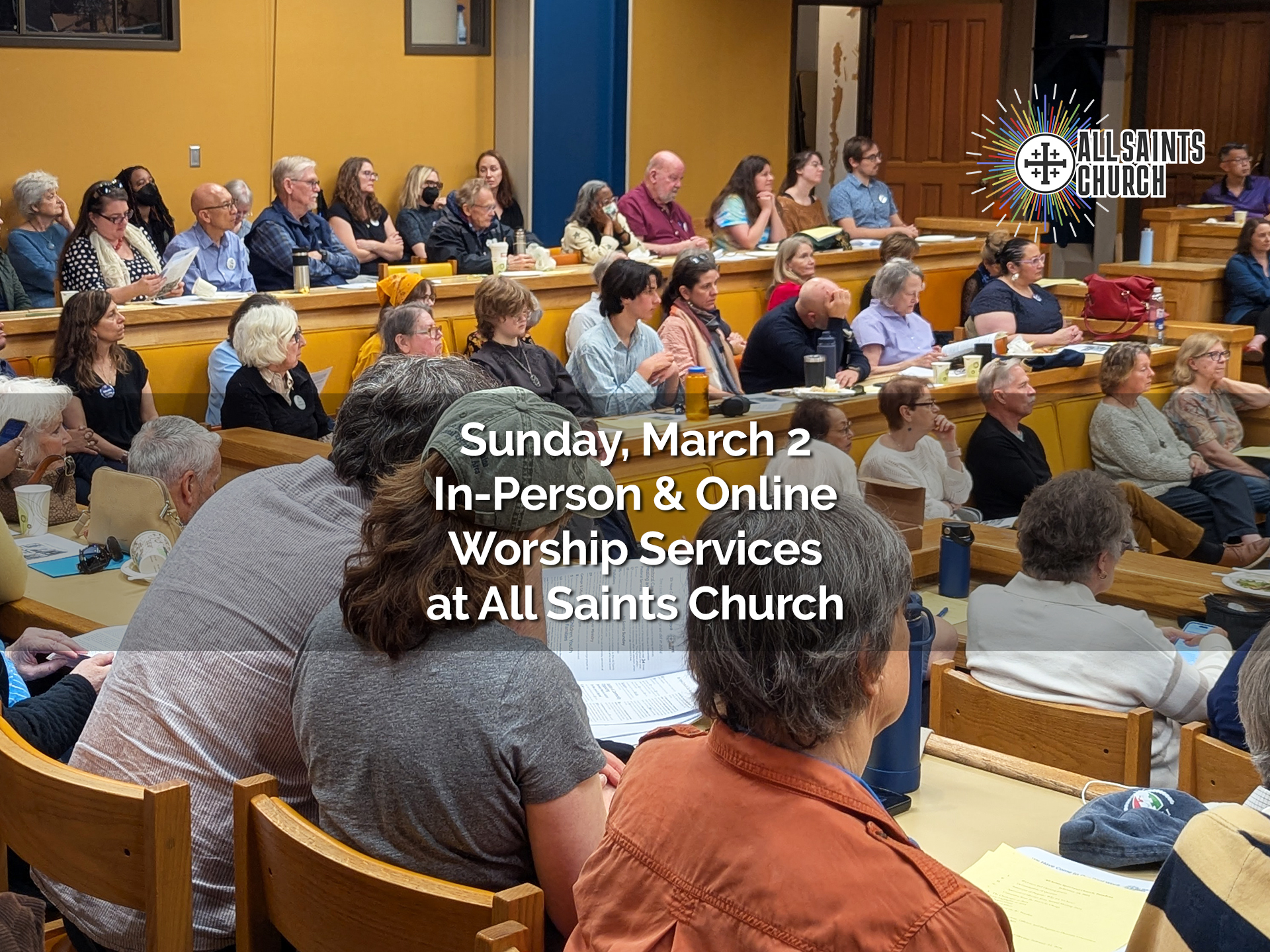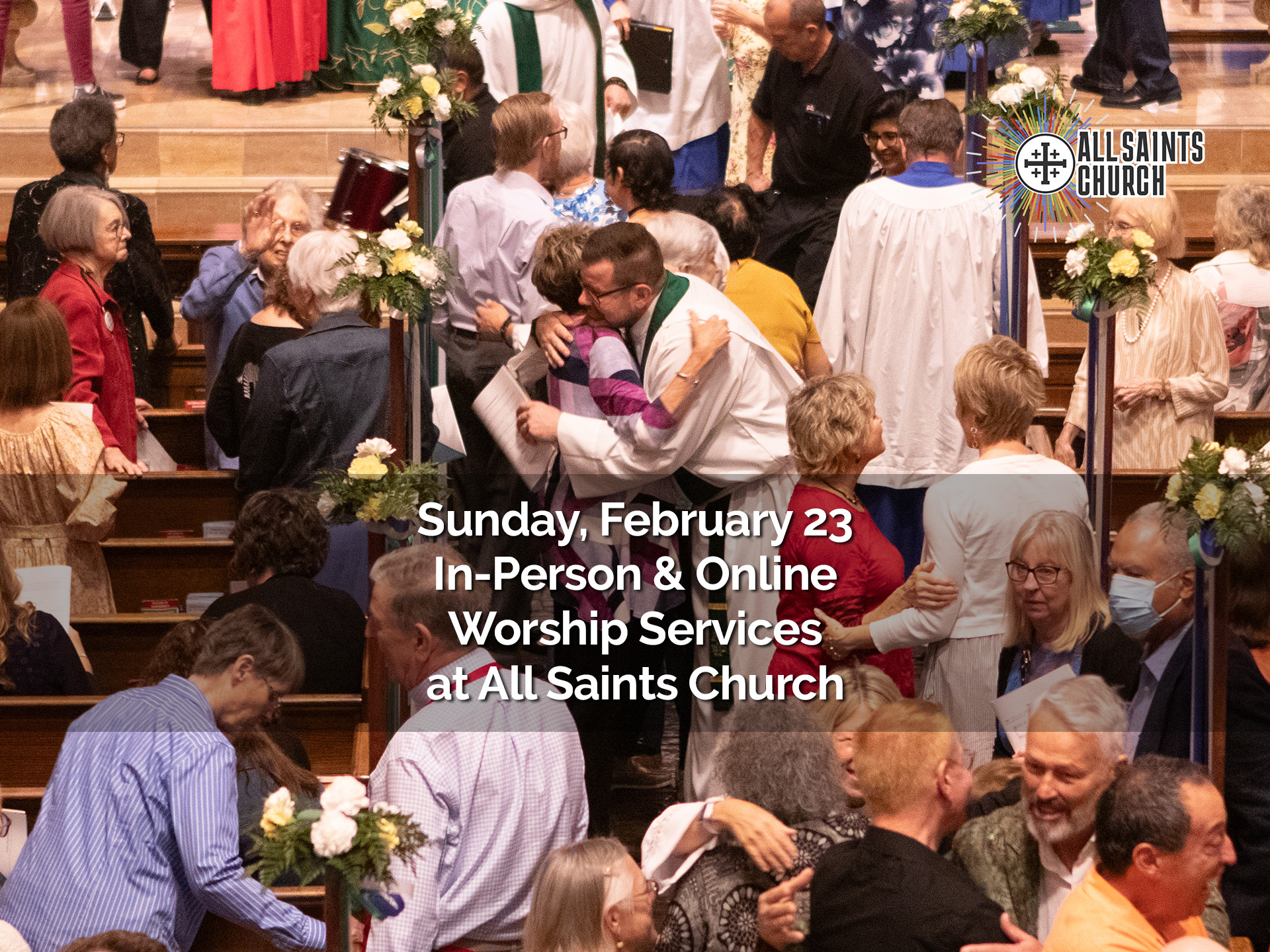Today’s Supreme Court decision invites us to consider two scriptural and one Constitutional principle that are foundational to our lives as followers of Jesus and as Americans.
The scriptural principles are our calls to take prophetic stands for justice and to love our enemies & pray for those who persecute us.
The Constitutional principle is the establishment and free exercise clause of the First Amendment.
We have a long scriptural tradition of being called to take prophetic stands for justice. Stands that are rooted in our deep conviction that every human being is created in the divine image and worthy of the highest dignity, compassion and love.
Through his life and death, Jesus shows us we are called to make those stands in ways that are both incarnational and sacrificial. We make those stands not just by the words we say but by how, as we have power and privilege, we give up that power and privilege to stand on the margins with and as those who are most oppressed.
Through his arrest, crucifixion and death, Jesus shows us these stands will often put us in conflict with the empires of our day – which draw their power from alliances of the powerful at the expense of the powerless. In those moments, we are called to stand before the throne and trust God will give us the words of justice and love to speak. We should neither expect nor demand the throne’s protection when we do. Rather, we should welcome the sanction of the throne knowing it gives us our opportunity to testify to the power of those words not only with our lips but with our lives.
This brings us to the constitutional principle of the establishment and free expression clauses of the First Amendment. Tragically, the Supreme Court has ruled that these rights can be used as a refuge for hatred and discrimination – in this case toward the gay, lesbian, bisexual, transgender and queer persons among us, but certainly not limited to them in future impact.
This ruling is offensive to us both as Americans and as followers of Jesus – and we need to be clear about the distinction.
It is offensive as an American because it violates the Constitutional principle of equal protection under the law.
It is offensive as a follower of Jesus because it denies the essential humanity of gay, lesbian, bisexual, transgender and queer images of God.
While we should and certainly will pursue an overturning of this case on Constitutional grounds, we should not seek to have our religious principles upheld by the court. If we do that, we are making the same mistake as those who filed this suit in the first place – who in seeking the protection of the throne not only showed a lack of understanding of the Constitution but cut off their greatest source of power. If they are sincere in their beliefs, their most powerful course of action would have been not to demand the protection of the throne but to welcome the sanction of violating a law that conscience compelled them to defy.
So while as Americans we must seek legal remedy … as followers of Jesus we have a different call: to stand with and as those who are most marginalized, targeted and oppressed and to refuse to stand with those who are doing the oppressing, to the point of greatest sacrifice and solidarity.
That means clearly and boldly proclaiming that the sacramental rite of marriage and all the joyous expressions of celebration surrounding it and all the communal support in sustaining it must be available to all people. Period. No exceptions. That means we must not leave our own General Convention without getting our own house in order and removing so-called “conscience clauses” that are merely another version of legally enshrined discrimination. Beliefs that dehumanize – even when held in good faith by those who espouse them – must not be allowed to find form in individual or common practice.
That means using our economic power not to patronize businesses that support discrimination of any type.
That means engaging those among us who are members of target populations in conversations about what solidarity and support look like – and as we have power and privilege being willing to give it up in solidarity and love.
That means as we find laws that discriminate in any way against beloved images of God and try to erase their humanity, we must defy those laws and welcome the sanction.
And yet, that is not all.
Justice Kennedy claims his ruling was based on the fact that the plaintiff’s religious beliefs were treated with “clear and impermissible hostility” and that “(further) disputes must be resolved with tolerance, without undue disrespect to sincere religious beliefs, and without subjecting gay persons to indignities when they seek goods and services in an open market.”
There are several logical inconsistencies to Justice Kennedy’s opinion. First, the idea that the very act of legalizing discrimination against someone is not itself an indignity is fairly baffling. Second, enshrined in the First Amendment right to freedom of expression is the idea that an idea can be treated with disrespect. We have to look no further than the Constitutional protections afforded the tiki-torch wielding mob in Charlottesville to see that disrespect of core principles of equality are protected. You could make the argument that Justice Kennedy’s entire opinion falls into this category as well.
However, Justice Kennedy’s opinion does bring to mind the scriptural principles which I stated at the beginning.
First, if there is a belief that is inherently erasing of the humanity of another, inherently unjust, inherently evil – it is not only permissible to disrespect that belief it is absolutely our sacred obligation to do so. We are called to take prophetic stands for justice.
Second, there is a distinction between the belief and the person espousing it. One we can and sometimes must disrespect. The other we must always love.
Jesus calls us to love our enemies and pray for those who persecute us. This is not just a rule of engagement, it is recognizing that love is the most powerful force for change in the universe and we will never stop fighting for justice using the best weapon we have.
That means if we are going to be victorious, if God and love are going to prevail, it is never permissible for us to treat each other in a way that does not honor another’s dignity as a human being. Our motivation and practice in our dealings with one another must always be mutual conversion to and by radical, abiding, love.
We absolutely must stand up against evil … and this ruling represents a triumph – however brief it may be – for evil. And part of standing up against evil is rebuking those who espouse and practice it even as we welcome the same examination and rebuke of the evil in which we participate.
And … at all times we do this out of love, for love and in love. Not just because “it’s the right thing to do” … but because love is our greatest power and our surest road to victory.



